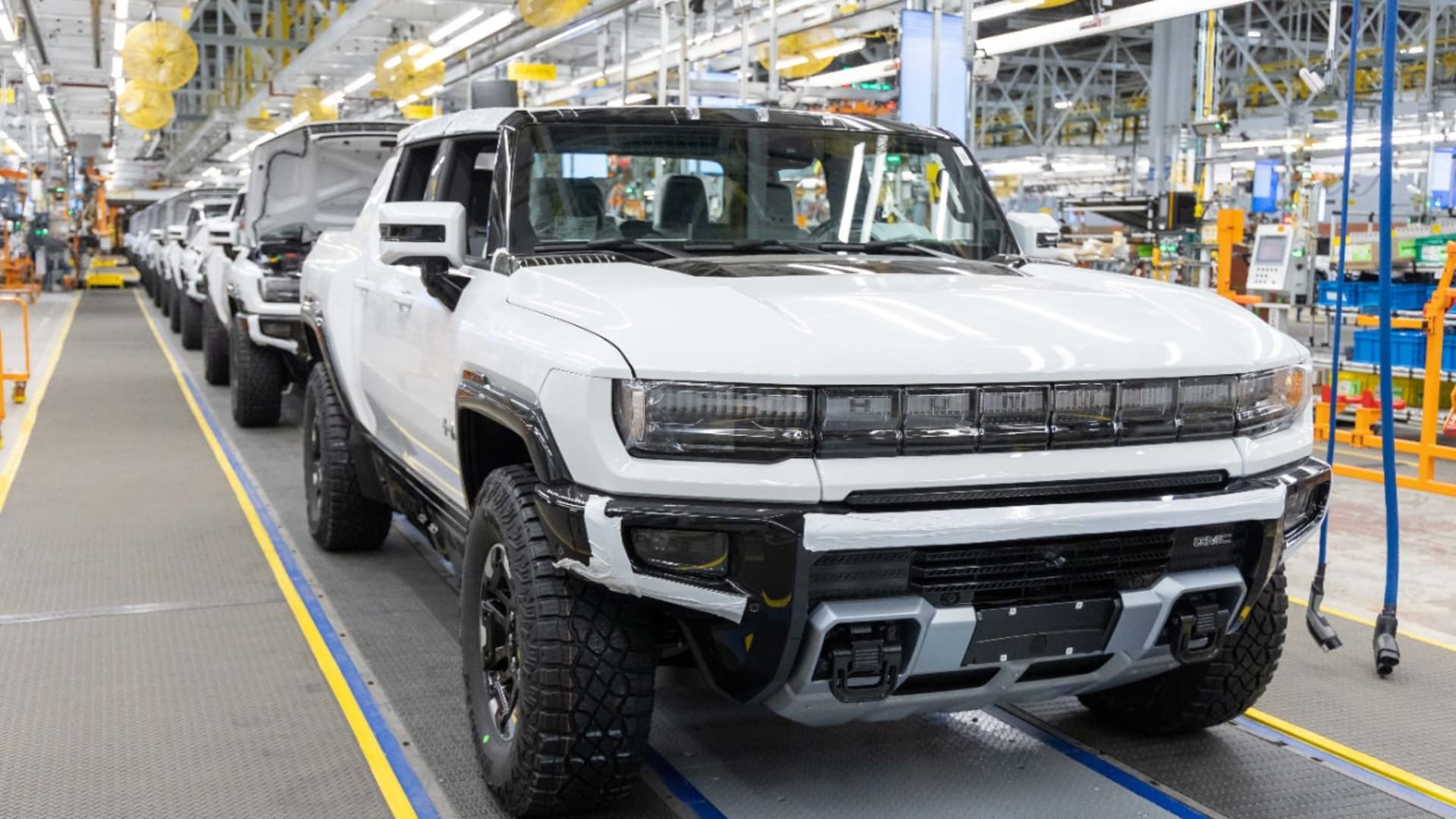
Production is now set to begin at the former Detroit-Hamtramck assembly plant, less than two years after GM announced the massive $2.2 billion investment to fully renovate the facility to build a variety of all-electric trucks and SUVs.
Photo by Jeffrey Sauger for General Motors
DETROIT – Shares of the Detroit automakers closed higher Friday following an afternoon report that President Donald Trump is considering “significant tariff relief” for the production of vehicles in the U.S.
Stocks for General Motors, Ford Motor and Chrysler parent Stellantis shifted from trading level or down to closing up between 1% to 4% on the report from Reuters.
The news organization, citing Republican Senator Bernie Moreno of Ohio as well as auto officials, said the potential change could “effectively eliminate much of the costs major car companies are paying.”
“The signal to the car companies around the world is, look, you have final assembly in the U.S.: we’re going to reward you,” Moreno told Reuters during an interview. “For Ford, for Toyota, for Honda, for Tesla, for GM, those are the almost in order the top five domestic content vehicle producers — they’ll be immune to tariffs.”

GM, Ford, Stellantis and Tesla stocks
Reuters reported that the changes could include extending a tariff offset of 3.75% for five years as well as adding U.S. engine production to the relief.
Shares of Ford, which assembles the most vehicles in the U.S., closed Friday at a new 52-week high of $12.67, up 3.7%. U.S.-listed shares of Stellantis closed up 3.2% to $10.73 per share, while GM closed at $60.13, up 1.3%
Tesla stock was little changed on the news, closing down 1.4% to $429.83 per share, while U.S.-listed shares for other automakers with notable operations in the U.S., such as Honda Motor and Toyota Motor, saw bumps.
Trump’s tariffs of 25% on imported vehicles and parts have been a major concern for the automotive industry, costing companies billions of dollars in higher costs.
Ford previously said it expected $3 billion in U.S. tariff-related costs this year, $1 billion of which it believed it could mitigate. GM has said it expected up to $5 billion in gross tariff-related costs this year, adding that it could potentially avoid at least 30% of that cost this year.
Automakers have been lobbying the Trump administration for relief, especially for U.S.-produced vehicles as well as those imported from Canada and Mexico.







